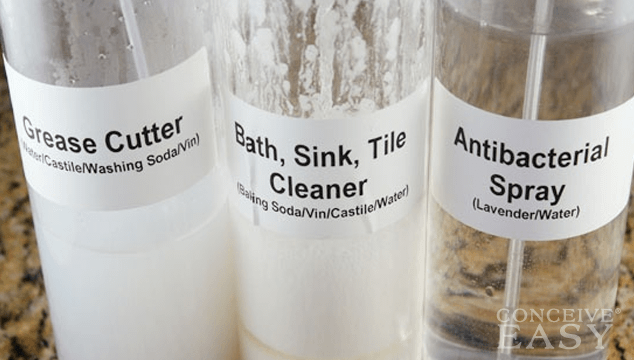This might be one that you have never heard of, or even thought about before. Can household chemicals be affecting your fertility? Well, maybe you should give it some thought. Earlier this year, the EPA released a warning against using cosmetics and medicines that contain Endocrine Disrupting Chemicals, saying that they can cause cancers, diabetes, obesity and fertility problems! Claim Your 20 Free Pregnancy Tests – Click Here

I know, I know, just what we need: one more thing to worry about. You have to take note that as a nation, our fertility issues are increasing. I mean, in 1984, around 5% of 18-29 year olds were deemed infertile, and now that number is somewhere around 13%. I mean, really? That is a serious number increase, and you have to wonder just what is to blame.

There are a ton of things that we use everyday that are said to be becoming more and more dangerous to our fertility. There has to be a happy medium somewhere, we can’t cut everything out of our lives, but if these things are really as dangerous as the studies say they are, I don’t want to be living with them! The Endocrine Disrupting Chemicals that the EPA is warning us against are found everywhere!
They are basically, as the name says, any chemical that disrupts the endocrine systems. In case you didn’t know, the endocrine systems are known as our hormonal systems, which makes sense as to why these chemicals could disrupt fertility, if they are disrupting our hormones.

There are so many different endocrine disrupting chemicals, or chemicals that are thought to be endocrine disruptor, that I don’t think I could even list them all in this post. Here are a few examples of where you might find EDC’s in your daily life:
![]() Water (EDC’s can come from leaky septic systems, sewer pipes, storm runoff, etc..)
Water (EDC’s can come from leaky septic systems, sewer pipes, storm runoff, etc..)
![]() Food (EDC’s can come from pesticides and chemicals used in foods, and from BPA found in food storage containers)
Food (EDC’s can come from pesticides and chemicals used in foods, and from BPA found in food storage containers)
![]() Personal Care Products (such as lotions, soaps, body washes, and cosmetics)
Personal Care Products (such as lotions, soaps, body washes, and cosmetics)
![]() Plastics (on dishes, water bottles, toys, baby bottles ,etc..)
Plastics (on dishes, water bottles, toys, baby bottles ,etc..)
![]() Pesticides (used at home or in public places)
Pesticides (used at home or in public places)

As you can see, EDC’s can be found almost everywhere, and there isn’t a lot we can do to completely cut them out of our lives. Even if we remove them from our lives, they are still going to be found in public places where we can’t help it. If you think that EDC’s are contributing to your fertility issues, talk with your doctor, and in the meantime, try to find ways to limit your use of them in your daily life.










Comments